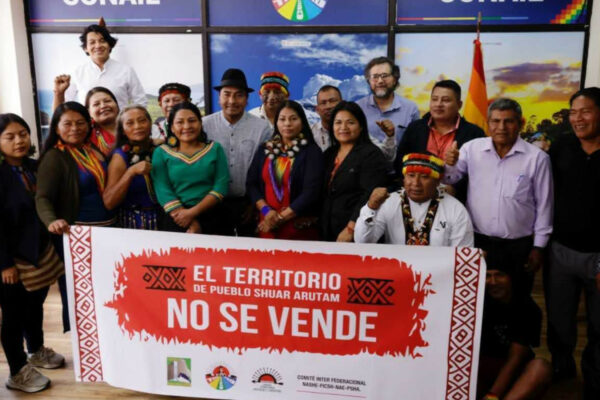Quito, Ecuador – Under tight security and threats of
protests, U.S. officials worked Friday to temper
skepticism from some Latin American countries about a
plan to create a hemisphere-wide free-trade zone by
2005.
Business and government representatives from 34
countries in the Western Hemisphere struggled to
outline a time frame to set up the Free Trade Area of
the Americas, a trade bloc envisioned as an extension
of NAFTA.
The talks were largely overshadowed by growing
resistance by some Latin American leaders who united
behind complaints the United States isn’t doing enough
to open its markets to businesses in the region.
“We have to defend our interests too,” said Argentine
Foreign Minister Carlos Ruckauf. “We have to go in
united to protect ourselves against the giant,” he
said, referring to the United States.
Venezuelan Production Minister Ramon Rosales also
cautioned that creating a larger trade area required
more effort from the United States.
“We need markets opened to us to help create jobs,” he
said. “It’s the only way to combat poverty and help
strengthen our economy.”
Business leaders from smaller economies in Latin
America and the Caribbean said they want the United
States to drop agricultural subsidies and import
tariffs as part of the agreement.
The talks were the most intensive since the Summit of
the Americas last year in Quebec, where protests
marred negotiations aimed at creating the free-trade
area from the Arctic to Argentina by 2005.
After days of protests, Ecuadorean authorities stepped
up security, throwing up metal barricades to block off
an area around the luxury hotel where the meetings
were taking place. A police surveillance helicopter
circled overhead.
Spray-painted messages on buildings near the hotel
signaled opposition by some in Ecuador to the plan.
“Say no to Yankee imperialism and no to free trade,”
read one.
But as the ministers entered their meetings, there was
little sign of the protests that had marked the days
leading up to the one-day talks.
Thousands of demonstrators took to the streets of
Quito on Thursday, chanting anti-free trade slogans
and calling on Latin and Caribbean governments not to
participate in the trade zone. But the streets of the
Ecuadorean capital were mostly quiet Friday.
The treaty calls for countries to lower trade barriers
and tariffs to help better develop cross-border
business.
The trade group’s supporters insist it will help
alleviate poverty and improve competitiveness at a
time when many countries – including Argentina,
Paraguay, Venezuela and Uruguay – are mired in
economic crises.
But some in the region worry the pact will lead to the
loss of jobs and local industry as new products flood
their local economies.
As he headed into the day’s meetings, Cesar Gaviria,
secretary-general of the Organization of American
States, urged those countries seeking to advance free
trade in the hemisphere to better inform their
countrymen about the pact’s advantages.
He also called on smaller countries in the region to
develop social programs for those who might be most
affected by any job loss due to a free trade
agreement.
“There are some sectors that will face difficulty
adjusting to the process and we need to protect them,”
he said.













